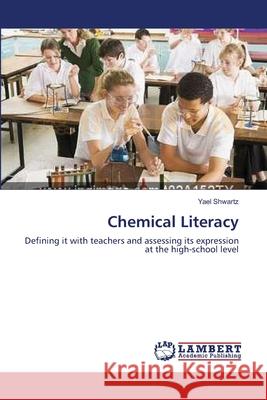Chemical Literacy » książka
Chemical Literacy
ISBN-13: 9783838302164 / Angielski / Miękka / 2009 / 212 str.
Science literacy for all is a multi-purpose enterprise: it should address the needs of future citizens as critical thinkers, consumers of scientific and technological products, and decision makers, and be a suitable platform for educating future scientists. The research described in this book defines chemical literacy - the chemical ideas and ways of thinking that should be part of science literacy for all. The process of defining chemical literacy involved science educators, high-school teachers, chemists, philosophers and others. The team worked in a format of a study group, discussing both theoretical and practical issues. Based on the obtained definition of chemical literacy, the expression of chemical literacy among high-school students was evaluated. The evaluation process was based on Prof. Bybees (BSCS director emeritus) levels of scientific literacy. The book contains a comprehensive literature review of the use and meaning of science literacy world wide. This research may help science educators, policy makers, science teachers and prospective teachers to think about why, and what kind of science should be taught K-12.
Science literacy for all is a multi-purpose enterprise:it should address the needs of future citizens as critical thinkers, consumers of scientific and technological products, and decision makers, and be a suitable platform for educating future scientists. The research described in this book defines chemical literacy - the chemical ideas and ways of thinking that should be part of science literacy for all. The process of defining chemical literacy involved science educators, high-school teachers, chemists, philosophers and others. The team worked in a format of a study group, discussing both theoretical and practical issues. Based on the obtained definition of chemical literacy, the expression of chemical literacy among high-school students was evaluated. The evaluation process was based on Prof. Bybees (BSCS director emeritus) levels of scientific literacy. The book contains a comprehensive literature review of the use and meaning of science literacy world wide. This research may help science educators, policy makers, science teachers and prospective teachers to think about why, and what kind of science should be taught K-12.











